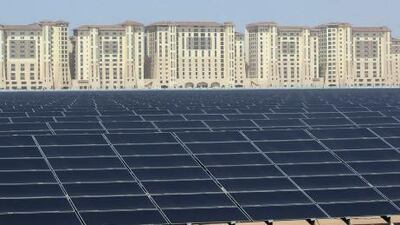Daniel Yergin's first book, The Prize, meticulously recounts the roller-coaster history of the global oil industry over the past 100 years. It is intimidating at more than 850 pages, but written with a touch of flamboyance that would not be out of place in Mario Puzo's The Godfather.
Tomorrow's exclusives tonight:
Industry Insights e-newsletter Stay ahead of the pack and get the pick of the premium Business content straight to your inbox. Sign up
In The Quest, his latest tour de force, Mr Yergin endeavours boldly to forecast what the next 100 years have in store for us in terms of our energy mix. Interestingly, the future will be similar to the past, according to Mr Yergin, with oil continuing to dominate everything we do.
In adopting this bullish view, Mr Yergin firmly rejects "peak oil", the concept that the world's production of affordable oil will soon reach a plateau and will decline in the years ahead.
Rather, he contends that "the world has decades of further production growth before flattening out into a plateau - perhaps some time around mid-century."
He suggests that production of oil and related liquids such as biofuels will grow from 92 million barrels per day (bpd) last year to more than 110 million bpd by 2030, an increase of almost 20 per cent.
This forecast is ambitious, given that world oil production has barely grown since 2005, despite the rise in oil prices during this period. In fact, the rate at which new projects are coming online is less than the decline rate for existing fields.
Over the past quarter century, for each barrel of conventional oil produced, less than half a barrel has been discovered.
There are also a few key concepts that are overlooked in this book. One is "net energy", or how much of the energy gets used in extracting the oil.
This is a growing concern as we move from inexpensive onshore wells to unconventional oil such as tar sands and ultra-deepwater fields, which require expensive and riskier extraction techniques.
Instead of asking "Is the world running out of oil?" the title of Yergin's chapter on this topic, the real question should be "Is the world running out of affordable oil?" Here the answer is much less clear.
Another important concept is "net exports". As major exporters such as Saudi Arabia use more of their oil domestically for petrochemicals and power production, there is less oil for importers such as the US and China.
Saudi Aramco, the Saudi national oil company, forecasts that the kingdom's daily energy demand will reach an equivalent of 8.3 million barrels by 2028, more than double the current rate, leaving it with much less oil to supply the world.
Mr Yergin glides through the various forms of renewable energy, such as solar, wind, biofuels and hydropower, but he remains sceptical about their chances of denting the dominance of oil.
He concludes that while our heads may look to the sun for clean energy, "our toes are still soaking in dirty, morally contaminated oil".
As you comb through this voluminous book, it becomes clear that the historian who even-handedly wrote about the politics of oil 20 years ago has since become an oil politician.
Indeed, over the past two decades, Mr Yergin has evolved into one of the world's most widely quoted energy consultants. He is routinely appointed to presidential panels and speaks at global summits from Washington to Davos; Rio to Riyadh.
His consulting firm now has almost every major oil company on its client list. Would he risk releasing information that might dampen the share price of the companies that pay him hefty retainer fees? Once again, the answer is not clear.
If I had read The Quest10 years ago, I would have been convinced by Mr Yergin's view that our planet will continue to be addicted to oil for another 100 years.
But as I look around, I am starting to see electric cars slowly finding their way on to our streets and 24-hour solar energy systems successfully powering entire communities. It's true, we still have a long way to go.
But in the ultimate quest for energy sustainability, the prize may yet be within our reach.
Vahid Fotuhi is the chairman of the Emirates Solar Industry Association

